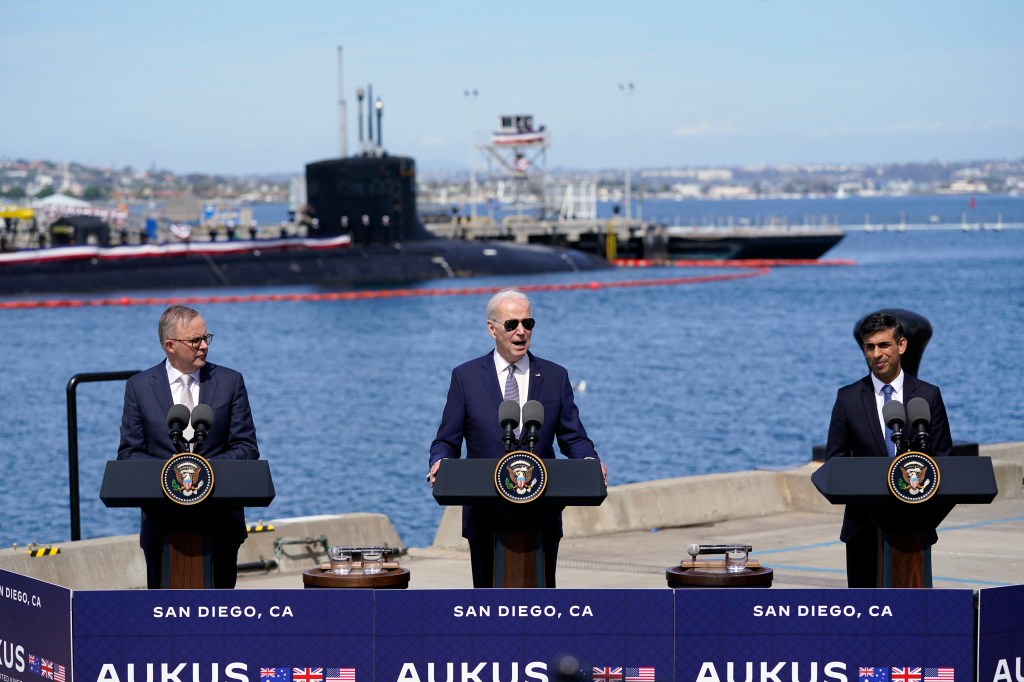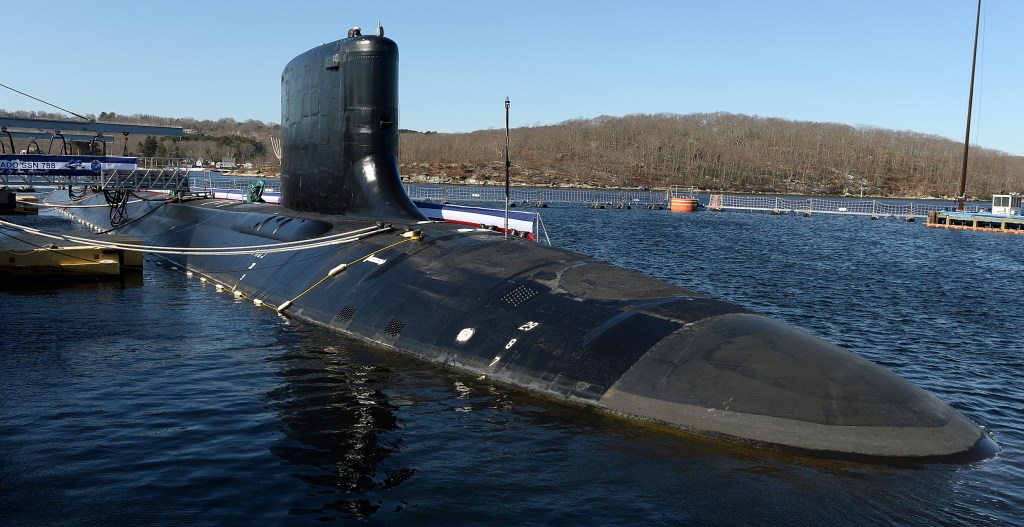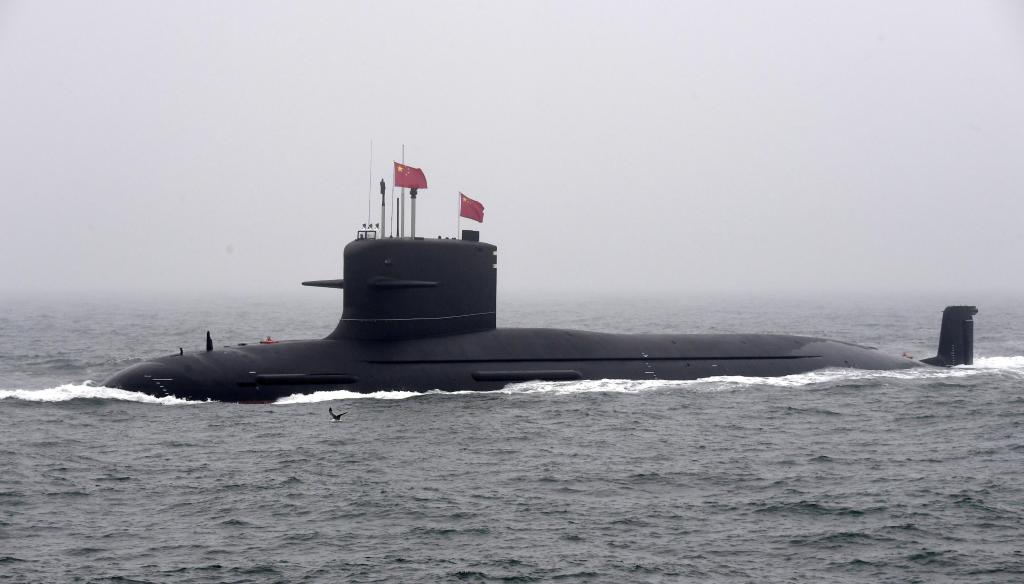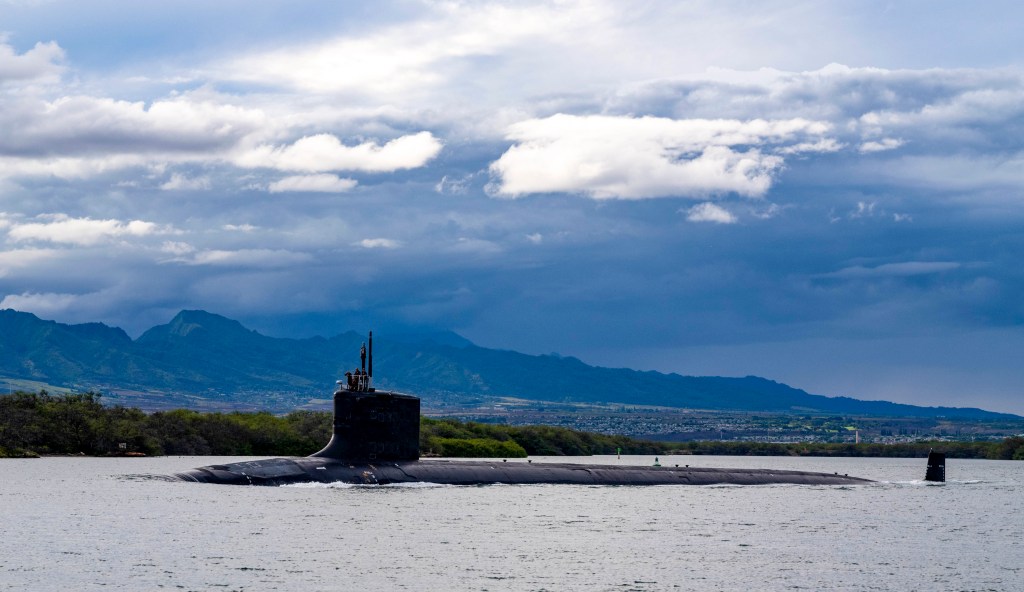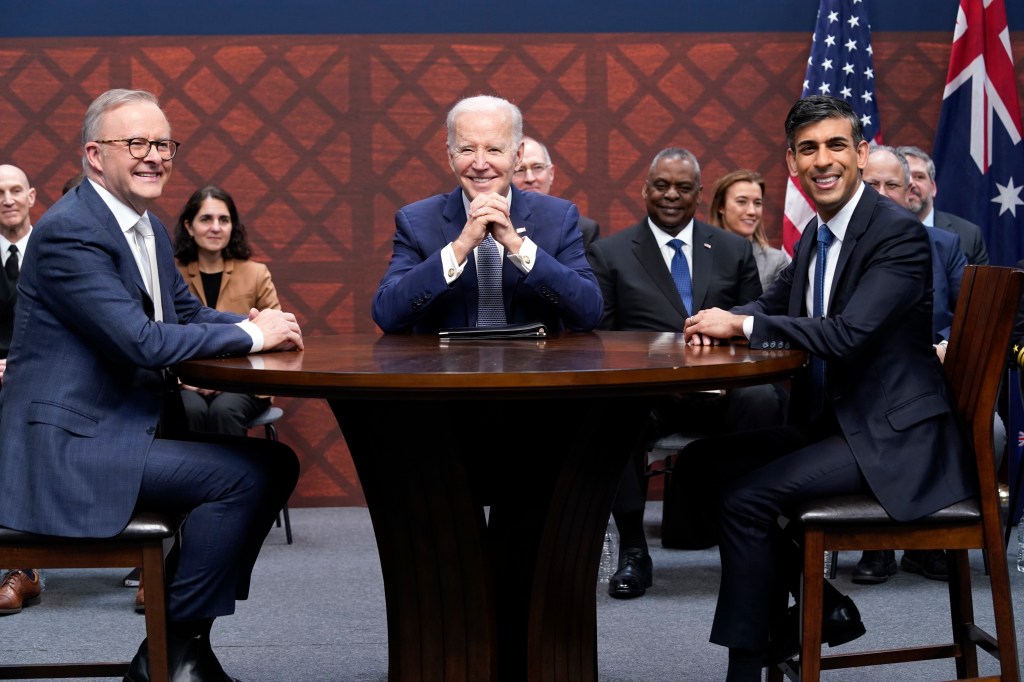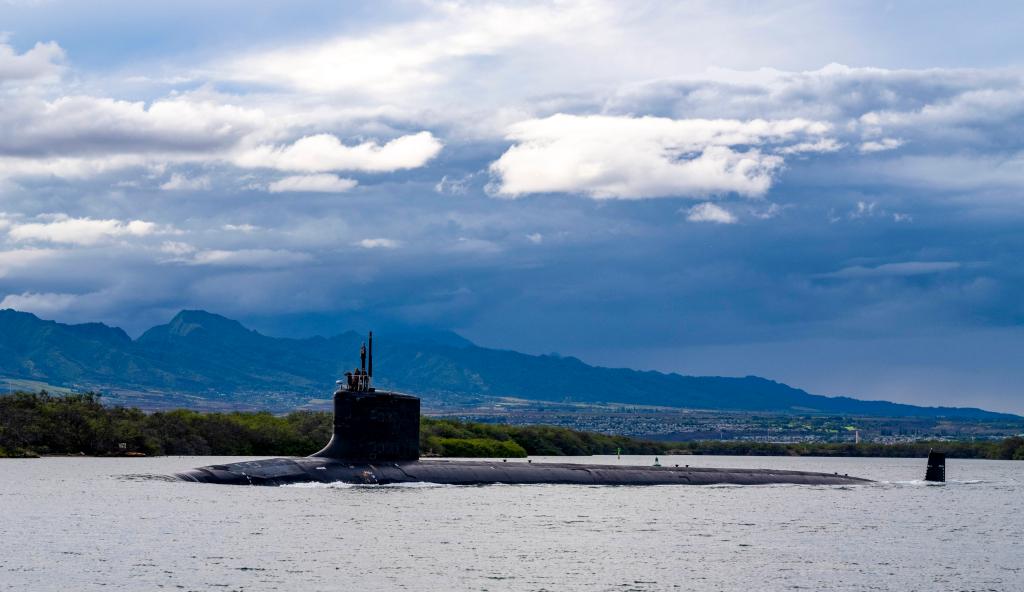Biden to arm Australia with at least three nuclear-powered submarines
President Biden announced on Monday that the US will sell at least three nuclear-powered attack submarines to Australia amid fears over China’s recent military buildup.
The sale of the sophisticated underwater craft was announced by Biden during an event in San Diego with Australian Prime Minister Anthony Albanese and British Prime Minister Rishi Sunak.
The three nations had previously announced in 2021 that they would enter the so-called AUKUS nuclear partnership — an acronym for Australia, the United Kingdom and the United States – that would allow Australia to purchase the stealthier and more capable nuclear-powered subs from the US to counter China.
“These boats will not have any nuclear weapons of any kind of them,” Biden, 80, stressed during his remarks at Naval Base Point Loma in San Diego, with the nuclear-powered USS Missouri and the USS Charlotte submarines docked behind him.
Albanese said the sub sale “represents the biggest single investment in Australia’s defense capability in all of our history.”
“This is the first time in 65 years and only the second time in history that the United States has shared its nuclear propulsion technology. And we thank you for it,” Albanese noted.
Sunak hailed AUKUS as “the most significant multilateral defense partnership in generations.”
“In the last 18 months, the challenges we face have only grown. Russia’s illegal invasion of Ukraine, China’s growing assertiveness, the destabilizing behavior of Iran and North Korea all threaten to create a world defined by danger, disorder, and division,” he said.
“Faced with this new reality, it is more important than ever that we strengthen the resilience of our own countries,” Sunak added, announcing that the UK will spend an additional £5 billion on defense over the next two years.
Australia is purchasing three, and possibly as many as five, Virginia-class submarines as part of AUKUS.
A future version of submarines is also slated to be built in the UK and in Australia with US technology and support.
The program is forecast to cost Australia $268 billion to $368 billion between now and the mid 2050s.
As part of the partnership, the US will also increase US nuclear sub visits to Australian ports, and Biden revealed Monday that the USS Asheville was currently docked in Perth, Australia.
The AUKUS deal sparked an international feud between France and Australia, when the Aussie government canceled a $66 billion contract for French-built conventional submarines in favor of a deal with the US.
China has blasted AUKUS, arguing that the partnership violates the Nuclear Non-Proliferation Treaty.
The communist nation contends that the transfer of nuclear weapons materials from a nuclear-weapon state to a non-nuclear-weapon state is a “blatant” violation of the pact.
Biden said Monday that “Australia is a proud non-nuclear weapons state and has committed to stay that way,” despite the sub deal.
Biden hammered the point home that the submarines were “nuclear-powered, not nuclear-armed.”
“Each of us standing here today representing the United States, Australia, and Great Britain is deeply committed to strengthening the nuclear non-proliferation regime,” Biden said.
Earlier this month, the authoritarian Chinese government announced it was boosting its annual military budget by about 7%, to $224 billion.
The nuclear-weapon-holding superpower boasts the world’s largest army, navy and has the biggest aviation force in the Indo-Pacific.








